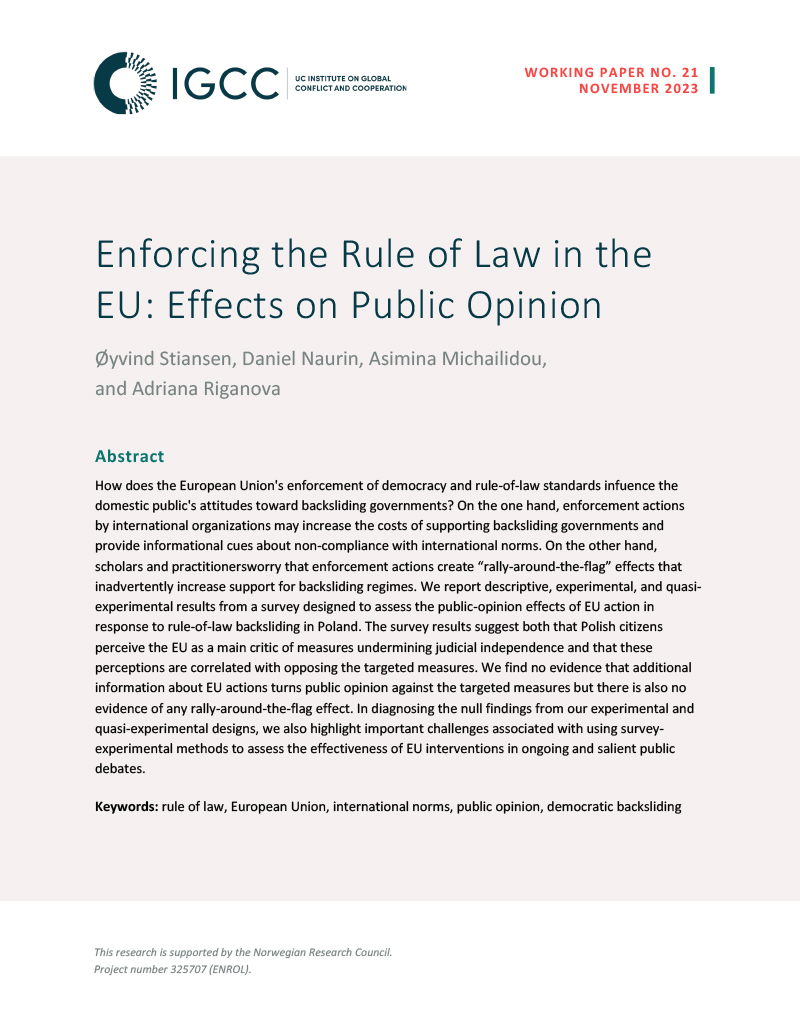Enforcing the Rule of Law in the EU: Effects on Public Opinion

In this working paper, Øyvind Stiansen, Daniel Naurin, Asimina Michailidou, and Adriana Riganova investigate the impact of European Union action against democratic backsliding in Poland. They find that EU action fails to turn public opinion against anti-democratic practices but also fails to catalyze citizens in support of their government.
DownloadHow does the European Union’s (EU) enforcement of democracy and rule-of-law standards influence the domestic public’s attitudes toward backsliding governments? On the one hand, enforcement actions by international organizations may increase the costs of supporting backsliding governments and provide informational cues about non-compliance with international norms. On the other hand, scholars and practitioners worry that enforcement actions create “rally-around-the-flag” effects that inadvertently increase support for backsliding regimes. In this working paper, Øyvind Stiansen, Daniel Naurin, Asimina Michailidou, and Adriana Riganova report descriptive, experimental, and quasi-experimental results from a survey designed to assess the public-opinion effects of EU action in response to rule-of-law backsliding in Poland. The survey results suggest both that Polish citizens perceive the EU as a main critic of measures undermining judicial independence and that these perceptions are correlated with opposing the targeted measures. The authors, all members of the IGCC network of scholars working on authoritarian regimes and international institutions, find no evidence that additional information about EU actions turns public opinion against the targeted measures but there is also no evidence of any rally-around-the-flag effect. In diagnosing the null findings from their experimental and quasi-experimental designs, they also highlight important challenges associated with using survey-experimental methods to assess the effectiveness of EU interventions in ongoing and salient public debates.
Thumbnail credit: Unsplash